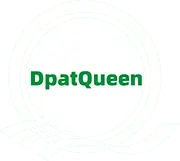As the world grapples with the pressing challenges of food security and environmental sustainability, innovative solutions are emerging from the animal feed industry. Bulk Mealworms, primarily sourced from the larvae of the darkling beetle, are gaining traction for their potential to revolutionize sustainable sourcing practices. According to a 2020 report by the Food and Agriculture Organization, edible insects, including mealworms, have a significantly lower environmental footprint compared to traditional livestock production, using only a fraction of the land, water, and feed resources. In fact, mealworms require just 2 kg of feed to produce 1 kg of protein, making them a more resource-efficient option for livestock and pet food.
The growing consumer demand for sustainable protein alternatives has led to an increase in the commercial viability of Bulk Mealworms. A recent market analysis by Allied Market Research projected that the edible insect market could reach $1.2 billion by 2023, fueled by the rising awareness of the benefits of insect farming. Furthermore, studies show that incorporating mealworms in animal diets can enhance nutritional profiles while reducing greenhouse gas emissions associated with traditional livestock. As we explore the multitude of advantages that Bulk Mealworms offer, it becomes clear that they could play a pivotal role in the future of sustainable sourcing.
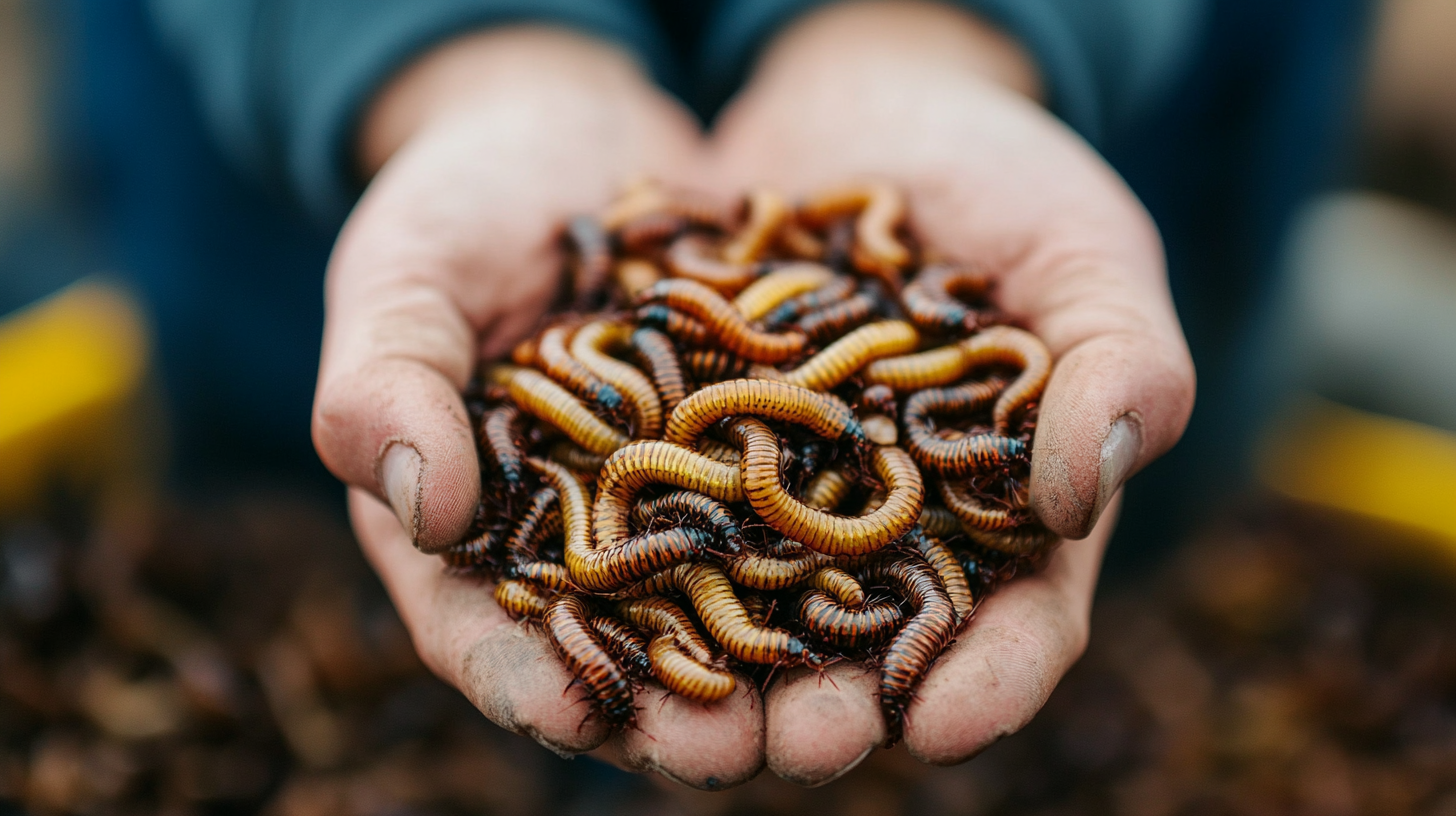
When it comes to sustainable protein sources, edible insects, particularly mealworms, stand out as a nutritional powerhouse. Rich in protein, healthy fats, vitamins, and minerals, mealworms offer a remarkable alternative to traditional livestock. They boast a protein content of about 50-60%, making them an excellent choice for those looking to boost their dietary intake without the environmental toll associated with conventional meat production. Additionally, mealworms can be easily raised on organic waste, which not only reduces overall food waste but also promotes a circular economy where resources are efficiently utilized. Despite the numerous benefits, the “ick factor” continues to be a barrier for many consumers in Western countries. However, with increasing awareness of food sustainability and the urgent need for innovative protein solutions, mealworms are beginning to gain traction. Their adaptability in various culinary applications—from protein bars to snacks—also helps in changing perceptions. As more people recognize the nutritional advantages and environmental friendliness of mealworms, we may see a significant shift toward acceptance and incorporation into mainstream diets. This shift could very well help mitigate fears surrounding food shortages as the demand for sustainable protein sources continues to grow.
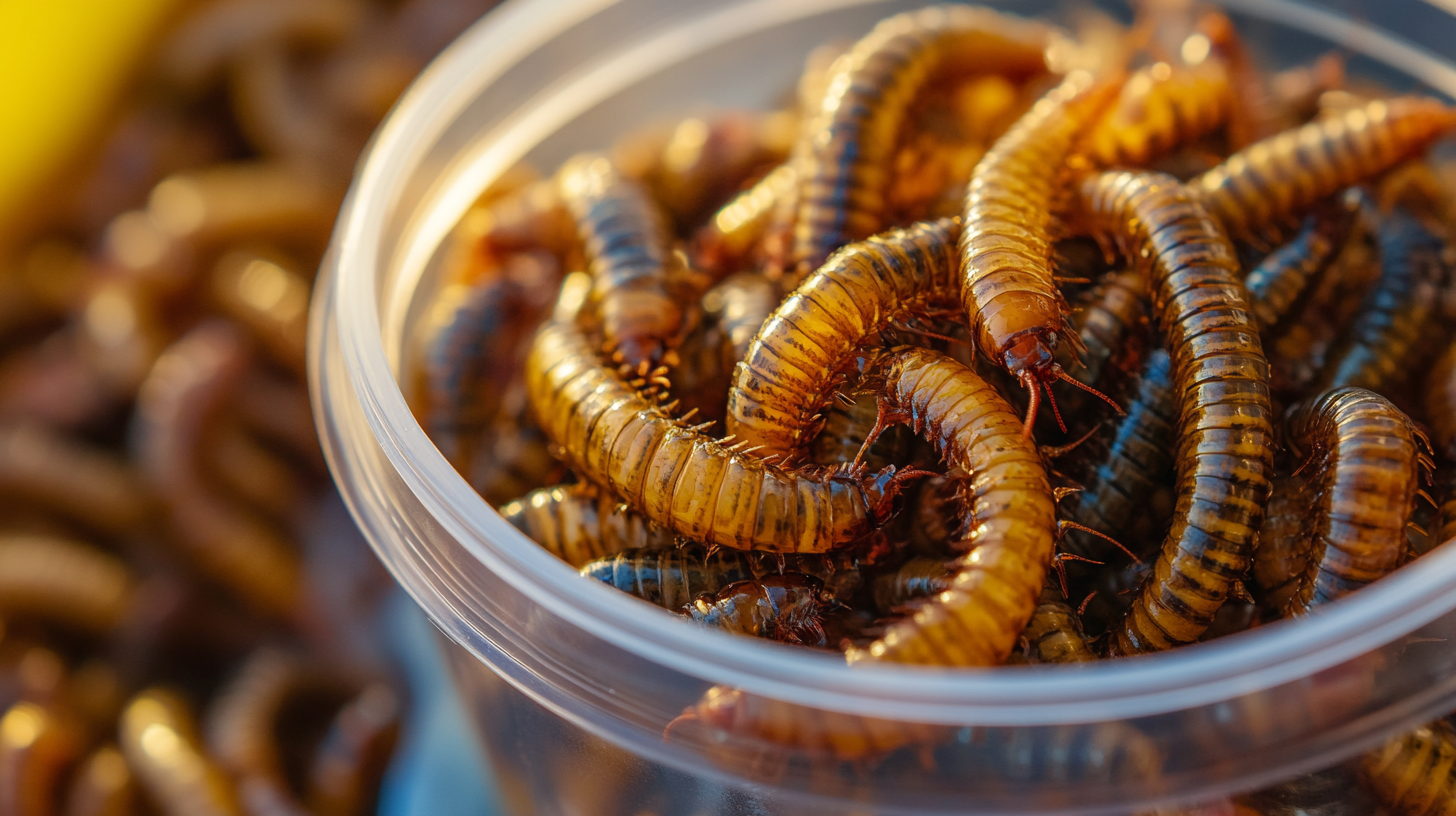
Mealworm farming is not only a promising venture for entrepreneurs but also a significant step towards sustainability in our food systems. These small insects, rich in protein and nutrients, offer a compelling alternative to traditional livestock farming, which often has a detrimental impact on environmental health. By choosing bulk mealworms, we can reduce land usage and greenhouse gas emissions significantly. Unlike cattle or pigs, mealworms require far less space and resources, making them an efficient choice for protein production.
Furthermore, mealworms thrive on organic waste, such as food scraps and agricultural byproducts. This process of upcycling waste not only helps to mitigate the growing problem of food waste but also reduces the overall ecological footprint associated with food production. By repurposing waste into a valuable protein source, mealworm farming exemplifies a circular economy, promoting sustainability while addressing food security issues. The environmental benefits extend to decreased water consumption as well, as the water footprint of mealworm farming is substantially lower than that of traditional livestock.
Embracing mealworm farming holds the potential to transform our approach to sourcing food sustainably. By investing in this innovative practice, we can contribute to a more resilient food system that prioritizes environmental health, reduces waste, and conserves valuable resources. Thus, integrating bulk mealworms into our diets is not just a personal choice; it's a commitment to a sustainable future that benefits both people and the planet.
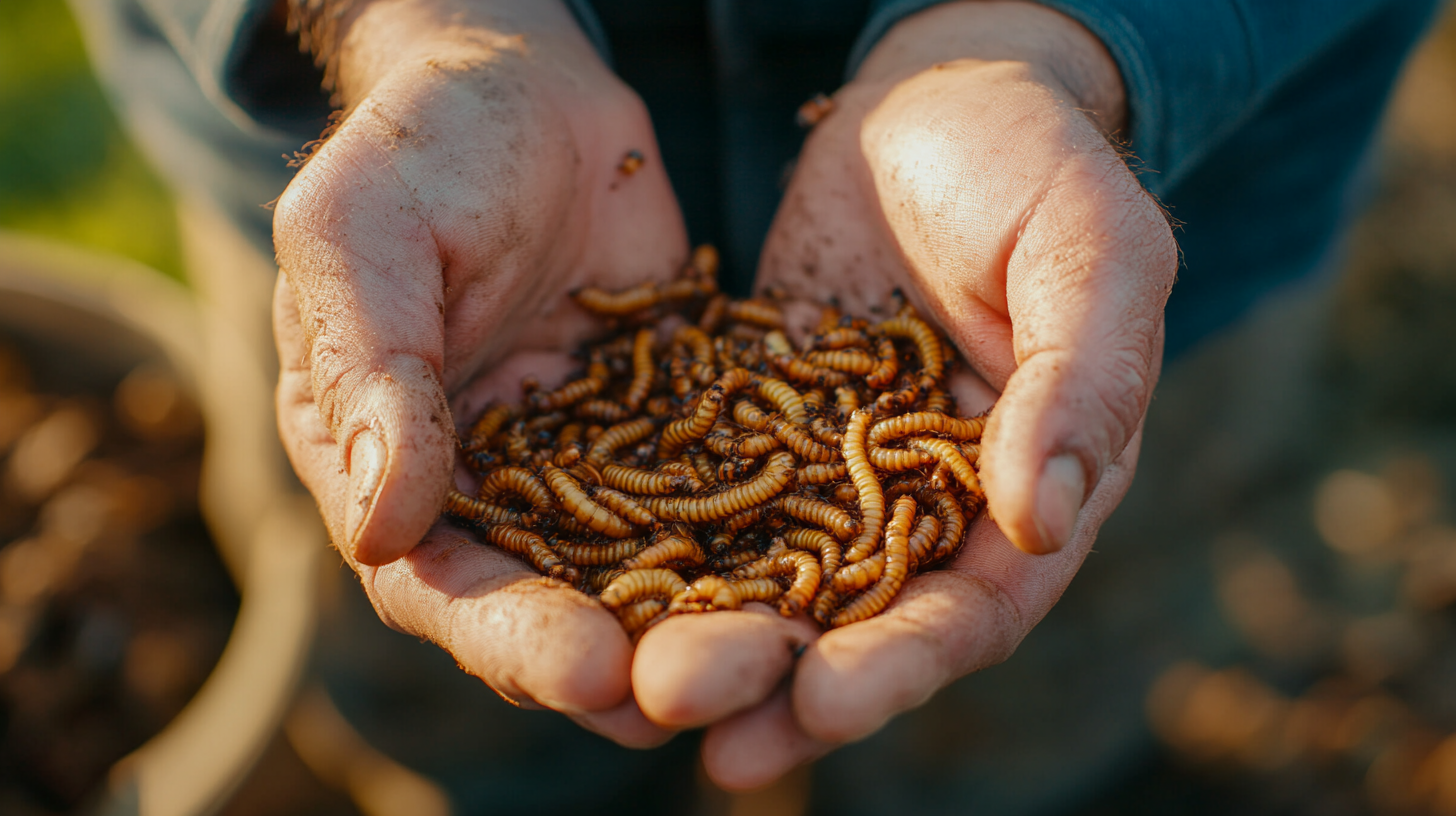
Bulk mealworms have emerged as a revolutionary option for those seeking cost-effective solutions in sustainable sourcing. As businesses and individuals look for innovative ways to keep expenses down while maintaining a commitment to environmental sustainability, mealworms provide an ideal solution. By sourcing mealworms in bulk, consumers can significantly reduce the per-unit cost compared to purchasing smaller quantities. This not only helps in cutting operational costs but also allows for more straightforward budgeting and planning.
Furthermore, the versatility of mealworms means they can be used in various applications, from animal feed to snack foods. This adaptability makes them an economical choice for businesses looking to diversify their product offerings without increasing expenditure. Bulk purchasing also mitigates supply chain risks associated with smaller orders, providing stability and reducing fluctuations in pricing. As a bonus, bulk mealworms often come directly from producers, which can lower transportation costs and support local agriculture.
As sustainability becomes increasingly crucial for businesses, bulk mealworm sourcing aligns perfectly with eco-friendly practices. Mealworms require significantly less land, water, and feed compared to traditional livestock, making them a sustainable protein source that appeals to environmentally-conscious consumers. By incorporating bulk mealworms into their sourcing strategies, companies can not only enhance their sustainability efforts but also enjoy substantial cost savings in the long run.
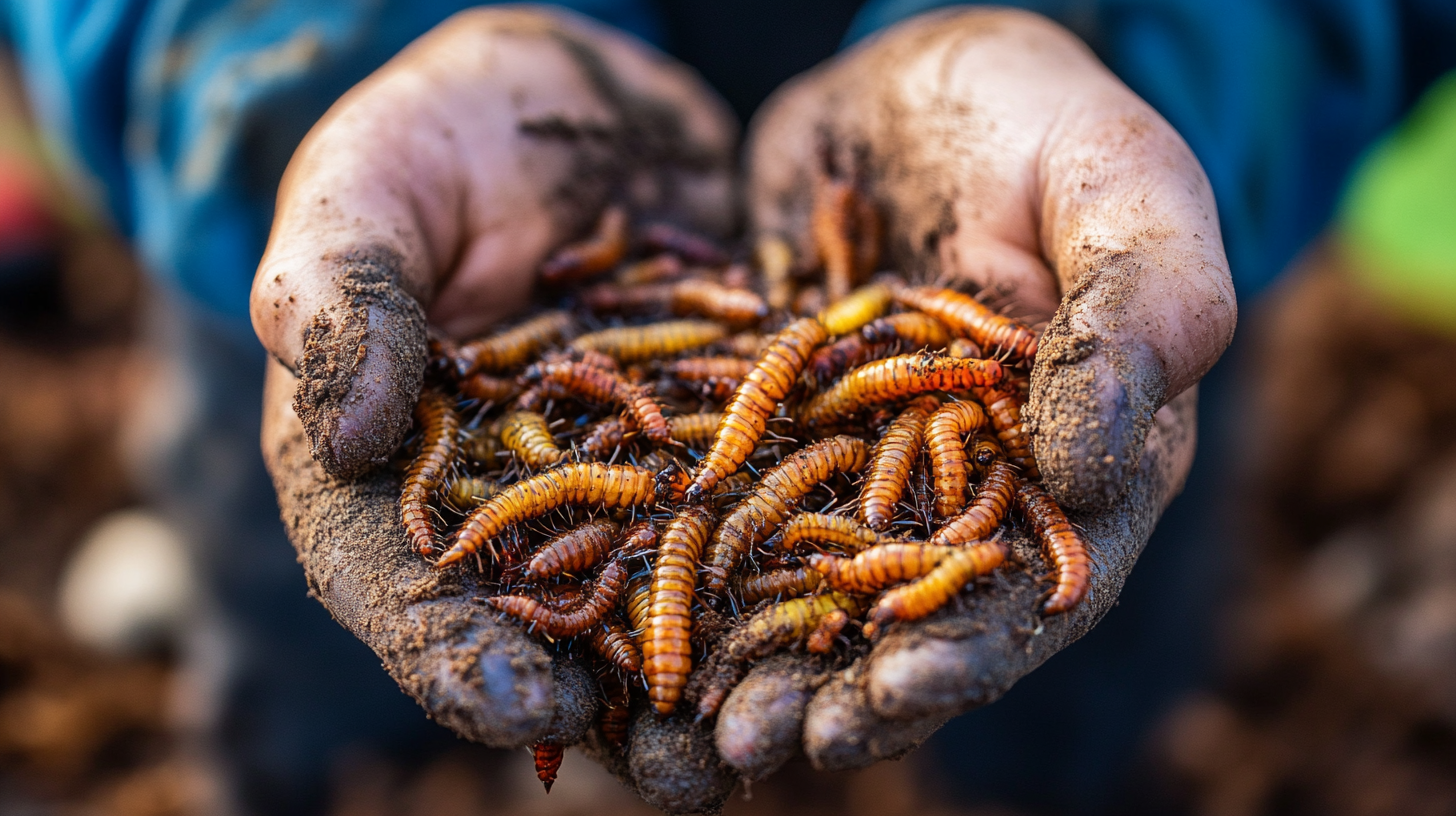
As the global population continues to surge, food security has become a pressing concern. Traditional agricultural practices face immense challenges in meeting the dietary needs of billions, leading to an urgent need for innovative solutions. One such solution lies in the humble mealworm, a nutrient-rich and highly sustainable food source that could play a pivotal role in addressing this crisis.
Mealworms are not only easy to raise but also require significantly fewer resources compared to conventional livestock. They thrive on organic waste, thereby contributing to waste reduction while producing high-quality protein. Additionally, their rapid growth cycle allows for quicker harvesting, making them a viable option for feeding a growing population. With their high feed-to-protein conversion ratio, mealworms could significantly lessen the environmental impact of our food systems.
Moreover, mealworms are versatile and can be incorporated into various food products, appealing to both human consumers and animal feed markets. Their rising popularity as a sustainable protein source reflects a broader shift towards more eco-friendly food systems. By embracing mealworms, we can not only enhance food security but also pave the way for a more sustainable and resilient agricultural future.
Mealworms, the larvae of the darkling beetle, have emerged as a versatile ingredient in various diets and products, and their inclusion is on the rise across different sectors. According to a report by the Food and Agriculture Organization (FAO), insects like mealworms offer a high protein content, with approximately 60-70% of their composition being protein. This makes them an excellent alternative protein source for both human consumption and animal feed, addressing global food security challenges.
The incorporation of mealworms into diverse diets extends beyond traditional applications. They can be found in protein bars, snacks, and even baked goods, providing a sustainable ingredient that appeals to health-conscious consumers. A study published in the journal "Food Research International" highlighted that mealworms are not only rich in protein but also contain essential vitamins and minerals such as B vitamins, iron, and zinc, which are vital for human nutrition.
Furthermore, mealworms have a significantly lower environmental footprint compared to conventional livestock. They require less land, water, and feed for production, making them an ideal candidate for sustainable sourcing. The FAO states that producing one kilogram of mealworms takes only 1.7 kg of feed, compared to 8 kg for beef. This efficiency underscores the potential of mealworms to contribute to sustainable food systems, making them not just a dietary supplement but a cornerstone in the transition towards more eco-friendly food sources.
